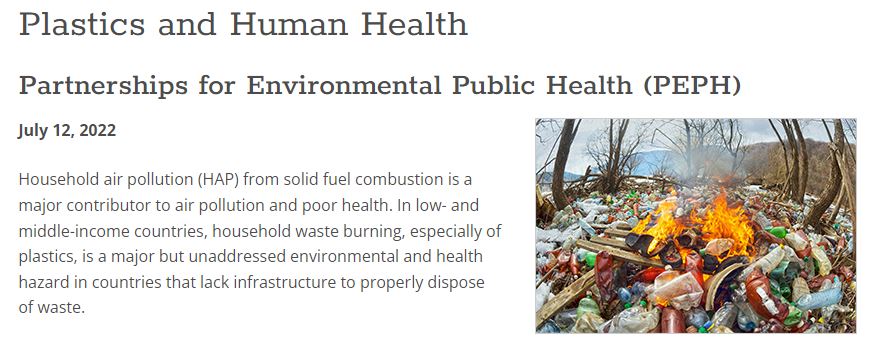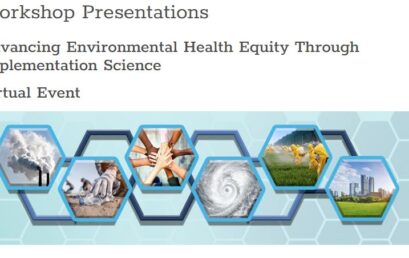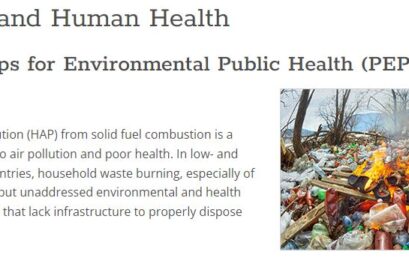
U.S. National Institutes of Health. Webinar on Advancing Environmental Health Equity Through Implementation Science
Panel 2: Evidence Based Prevention and Interventions. March 2022.

U.S. National Institutes of Health. Partnerships for Environmental Public Health (PEPH) Webinar on Plastics and Human Health. July 2022.
Household air pollution (HAP) from solid fuel combustion is a major contributor to air pollution and poor health. In low- and middle-income countries, household waste burning, especially of plastics, is a major but unaddressed environmental and health hazard in countries that lack infrastructure to properly dispose of waste.

Handley, Margaret. 2022. Confronting the plasticine: promise in a world wrapped in plastic.
As we poured water into a jug to be added to the ashes in the bucket, Maria (not her real name) asked in Spanish, “Why does making soap have anything to do with plastic?” Maria and another 50 or so Indigenous women from her village, in the highlands of southeastern Guatemala, had gathered ashes from their home fires and filled water jugs to bring to their community centre for a workshop with a local craftswoman on soap making; the first step of which is mixing ash with water and letting it sit…..


